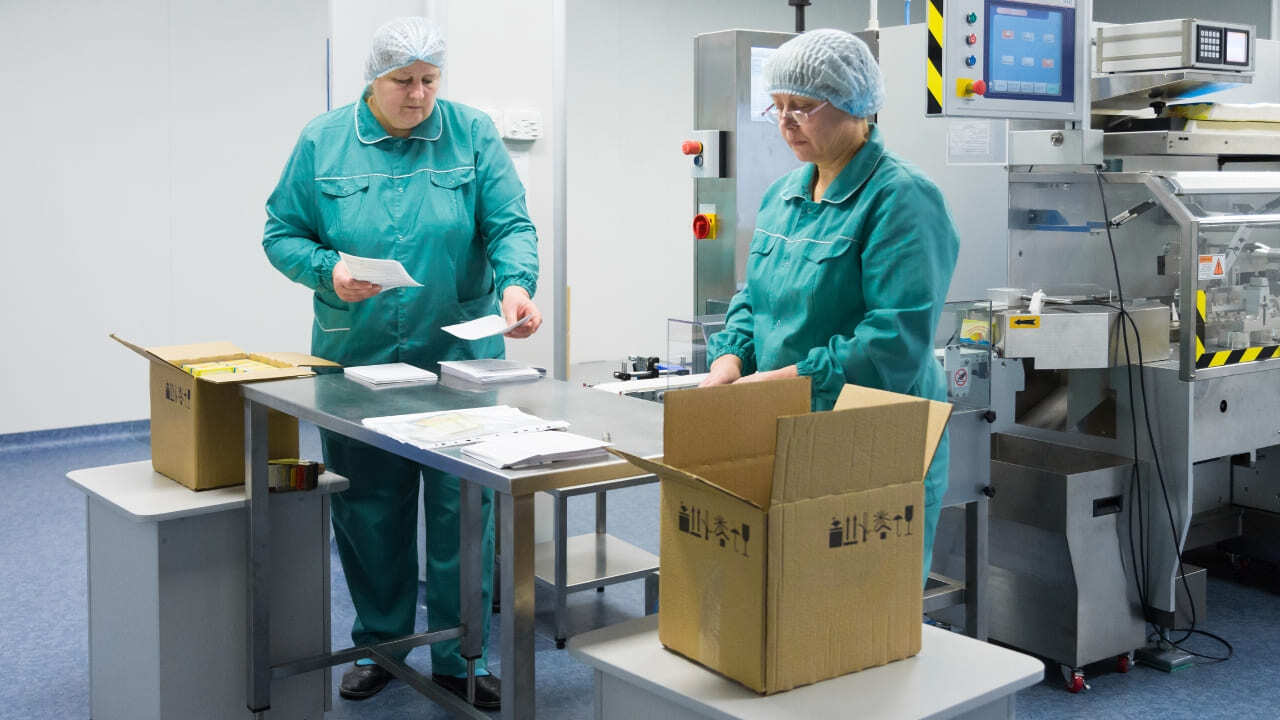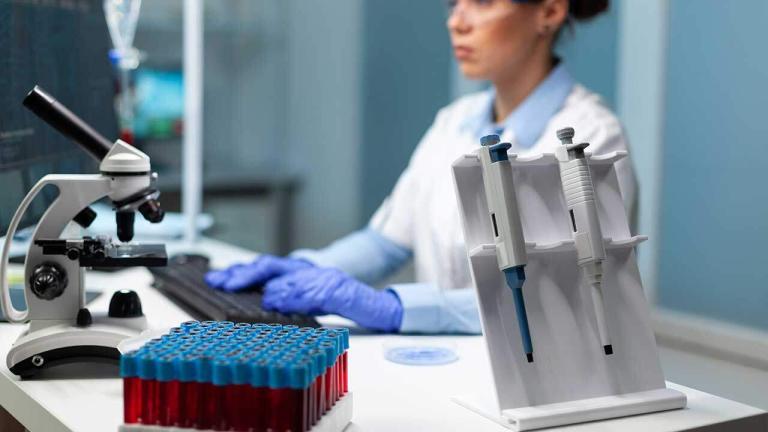
The management of clinical supplies stands as a cornerstone, ensuring the seamless progression of studies and the safety of participants. Clinical Supply Management (CSM) includes a broad range of activities, from the meticulous planning and forecasting of supply needs to the procurement and distribution of investigational products.
As the pharmaceutical and biotech industries continue to evolve, the role of Contract Development and Manufacturing Organizations (CDMOs) has become increasingly pivotal. These organizations not only provide essential manufacturing services but also offer specialized expertise in managing the complex supply chains required for clinical trials.
This article will explore the multifaceted nature of clinical supply management, highlighting its significance, challenges, and the innovative solutions that CDMOs bring to the table, ensuring that trials run smoothly and efficiently.
The Importance of Clinical Supply Management
Clinical supply management is a critical component of clinical trial operations, with far-reaching implications for the success and efficiency of studies. At its core, effective clinical supply management ensures that investigational products are delivered to trial sites in a timely manner, thereby enabling the smooth progression of clinical trials.
This is essential not only for maintaining the integrity of the trial timeline but also for ensuring that patients have uninterrupted access to potentially life-saving treatments.
The stakes are high, as delays or errors in supply management can lead to significant financial losses, compromised trial data, and ultimately, delays in bringing new therapies to market. Moreover, the management of clinical supplies directly impacts patient safety, as it ensures that medications are stored, handled, and administered under the right conditions, maintaining their efficacy and safety.
Furthermore, in an era where clinical trials are increasingly global and complex, the logistical challenges of managing supplies across different regions and regulatory environments add another layer of importance to effective supply management. In this context, the role of Clinical Supply Managers becomes indispensable, as they navigate the complexities of the supply chain to ensure the seamless execution of clinical trials.
Key Components of Clinical Supply Management
Clinical supply management encompasses several essential components, each playing a vital role in ensuring the smooth execution of clinical trials:
- Planning and Forecasting: This involves estimating the quantity of supplies needed for the trial, taking into account factors such as patient enrollment, dosing schedules, and study duration. Accurate forecasting is important to avoid supply shortages or excesses, which can impact trial timelines and budgets.
- Procurement: The sourcing and purchasing of investigational products and ancillary supplies are critical to ensure their quality and compliance with regulatory standards. Effective procurement strategies involve managing vendor relationships and negotiating contracts that align with the trial’s requirements.
- Distribution: Efficient distribution logistics are required to deliver supplies to trial sites globally. This includes managing customs clearance, ensuring temperature-controlled shipping for sensitive products, and tracking shipments to guarantee timely delivery.
- Regulatory Compliance: Adherence to Good Manufacturing Practices (GMP) and other regulatory guidelines is essential to ensure the safety and quality of clinical supplies. Compliance involves rigorous documentation, quality control measures, and regular audits.
- Temperature Control: Many investigational products require specific temperature conditions to maintain their stability and efficacy. Implementing robust temperature control measures, such as validated shipping containers and continuous monitoring systems, is important to prevent product degradation.
- Inventory Management: Effective inventory management ensures that there is an adequate supply of investigational products at trial sites while minimizing waste. This involves tracking inventory levels, managing expiry dates, and implementing reorder thresholds.
The Role of Technology in Clinical Supply Management
Technology plays a pivotal role in enhancing the efficiency and accuracy of clinical supply management. A study by McKinsey found that elevating clinical drug supply to best-in-class standards can lead to cost savings in clinical drug supply of 15 to 20 percent, with the potential for one to two years shorter drug launches.
The rapid growth in clinical trials has accelerated R&D spending in the pharmaceutical industry, reaching $190 billion in 2019. The integration of advanced software and systems has revolutionized the way clinical supplies are managed, tracked, and distributed.
- Inventory Management Systems: These systems provide real-time visibility into inventory levels, enabling proactive management of stock and reducing the risk of shortages or overstocking. They also facilitate the tracking of expiration dates and batch numbers, ensuring compliance with regulatory requirements.
- Forecasting and Simulation Tools: Advanced algorithms and simulation tools help in more accurate forecasting of supply needs, taking into account variables such as patient enrollment rates and dosing schedules. This leads to more efficient planning and reduced waste.
- Temperature Monitoring Technology: Wireless sensors and IoT devices enable continuous monitoring of temperature conditions during storage and transportation. This ensures that temperature-sensitive products are maintained within the required range, preserving their integrity.
- Increasing Complexity of Clinical Trials: Modern clinical trials require more procedures, endpoints, data points, and research sites compared to the past. Over 6,100 industry-funded interventional clinical trials started in 2019. Protocols are dynamic, which adds to the complexity of managing clinical supplies.
- Blockchain and Serialization: Blockchain technology and serialization offer enhanced traceability and security in the supply chain. They provide a tamper-proof record of the movement and handling of clinical supplies, ensuring accountability and compliance.
- Electronic Data Interchange (EDI): EDI facilitates the seamless exchange of data between stakeholders, streamlining procurement, and distribution processes. It reduces manual errors and speeds up transactions, improving overall supply chain efficiency.
Challenges in Clinical Supply Management
Despite advancements in technology and processes, clinical supply management continues to face several challenges:
- Global Logistics Complexity: Managing supplies for multinational trials involves navigating diverse regulatory environments, customs procedures, and logistical hurdles. Coordinating shipments across different countries and time zones adds to the complexity.
- Regulatory Compliance: Staying compliant with constantly evolving regulatory requirements across different regions is a significant challenge. Ensuring that supplies meet quality standards and regulatory guidelines requires diligent oversight and documentation.
- Supply Chain Disruptions: Events such as natural disasters, political instability, or pandemics can disrupt the supply chain, leading to delays or shortages. Mitigating these risks requires robust contingency planning and agile response strategies.
- Temperature Control: Maintaining the integrity of temperature-sensitive products throughout the supply chain is challenging, especially when dealing with extreme weather conditions or infrastructure limitations in certain regions.
- Forecasting Accuracy: Accurately predicting supply needs is difficult due to the inherent uncertainties in clinical trials, such as fluctuating enrollment rates and changes in study protocols. Overestimating or underestimating demand can lead to waste or shortages.
Best Practices for Effective Clinical Supply Management
Effective clinical supply management is important for the success of clinical trials. Implementing best practices can help overcome challenges and ensure the efficient and timely delivery of investigational products. Here are some key strategies:
Early Planning and Collaboration
Engage in early planning and collaboration among all stakeholders, including sponsors, CDMOs, clinical sites, and logistics providers. This ensures a clear understanding of supply needs and timelines, enabling proactive management of potential issues.
Integrated Supply Chain Strategy
Develop an integrated supply chain strategy that aligns with the overall trial objectives. This should include risk assessment, contingency planning, and clear communication channels to ensure a cohesive approach to supply management.
Accurate Forecasting
Utilize advanced forecasting tools and data analytics to improve the accuracy of supply estimates. Regularly review and adjust forecasts based on actual trial data and changes in enrollment or study design.
Vendor Management
Establish strong relationships with reliable vendors and suppliers. Conduct thorough due diligence and regular audits to ensure their compliance with regulatory standards and quality requirements.
Regulatory Compliance
Stay abreast of regulatory changes and ensure that all supply chain activities are in compliance with relevant guidelines and standards. Implement robust quality management systems and maintain thorough documentation for audit readiness.
Temperature Control and Monitoring
Implement stringent temperature control measures for sensitive products, including validated packaging and monitoring systems. Ensure that all handling and transportation processes maintain the required temperature conditions.
Inventory Management
Employ effective inventory management techniques, such as just-in-time delivery and safety stock strategies, to minimize waste and ensure the availability of supplies. Utilize inventory tracking systems for real-time visibility and control.
Supply Chain Visibility
Enhance supply chain visibility through the use of technology, such as track-and-trace systems and electronic data interchange (EDI). This enables real-time monitoring of shipments and inventory levels, facilitating timely decision-making.
Risk Management
Conduct regular risk assessments to identify potential supply chain vulnerabilities. Develop contingency plans to address risks such as supply shortages, logistical disruptions, or regulatory changes.
Sustainability
Incorporate sustainability practices into the supply chain, such as reducing packaging waste and optimizing transportation routes. This not only minimizes environmental impact but can also lead to cost savings.
Patient-Centric Approach
Adopt a patient-centric approach in supply management, ensuring that the needs and safety of trial participants are prioritized. This includes considering patient convenience in packaging and distribution strategies.
Continuous Improvement
Promote a culture of continuous improvement within the supply chain. Regularly review processes and performance metrics to identify areas for enhancement and implement best practices.
Cross-Functional Teams
Establish cross-functional teams that include representatives from clinical operations, supply chain management, quality assurance, and regulatory affairs. This promotes a holistic approach to supply management and facilitates effective problem-solving.
Technology Integration
Use technology solutions, such as centralized supply chain management platforms, to streamline processes, improve data accuracy, and enhance collaboration among stakeholders.
Training and Development
Invest in training and development programs for supply chain personnel to ensure they have the necessary skills and knowledge to manage the complexities of clinical supply chains effectively.
Tracking and Improving Performance Metrics in Clinical Supply Management
Performance metrics are important indicators of the effectiveness of clinical supply management. Here are some key metrics and their current status:
- On-Time In-Full (OTIF) Delivery: With a fulfillment level of 97 percent, OTIF delivery is generally not a concern. This high rate indicates that investigational products are reaching trial sites on time and in the required quantities, contributing to the smooth progression of clinical trials.
- Quality Metrics: There is room for improvement in quality metrics, particularly regarding deviations in packaged and labeled kits. Addressing these issues is essential to ensure the accuracy and integrity of trial supplies, which directly impacts the reliability of trial results.
- Temperature Excursions: Temperature excursions in the distribution chain are minimal, indicating effective temperature control measures. Maintaining the stability of temperature-sensitive products is critical for their efficacy and safety.
- Waste Levels: The median waste level for investigational medicinal product (IMP) kits is 50 percent, primarily due to poor forecasting and planning. Reducing this waste level is a key area for improvement, as it has significant financial and environmental implications.
Closing Thoughts
Clinical supply management is a critical yet complex component of clinical trial operations. Its success hinges on meticulous planning, effective collaboration, and the adoption of best practices across the supply chain. By using technology, ensuring regulatory compliance, and prioritizing patient safety, organizations can navigate the challenges and ensure the timely delivery of investigational products.
As the landscape of clinical trials continues to evolve, the role of clinical supply management will only grow in importance, underscoring the need for continuous innovation and adaptability. Ultimately, effective clinical supply management is not just about logistics; it’s about ensuring that life-saving therapies reach patients efficiently and safely.
Frequently Asked Questions
Clinical supply management plays a crucial role in the success of clinical trials. As clinical trials increase in volume, become more complex, and require shorter turnaround times, efficient management of clinical drug supply becomes essential.
Technology streamlines inventory management, forecasting, temperature monitoring, and supply chain visibility, enhancing efficiency and accuracy in clinical supply management.
Challenges include navigating diverse regulatory environments, managing logistics across different regions, and ensuring consistent quality and compliance.
Waste can be reduced through accurate forecasting, just-in-time delivery strategies, and efficient inventory management to minimize excess supplies.
Temperature control is important for maintaining the stability and efficacy of temperature-sensitive products, ensuring they remain safe and effective for trial participants.
Regulatory compliance ensures that clinical supplies meet quality standards, are safe for use, and adhere to guidelines set by regulatory bodies, impacting every aspect of supply management.
Strategies include using advanced analytics, regularly updating forecasts based on trial data, and incorporating buffer stocks to accommodate uncertainties.
Sustainability efforts include reducing packaging waste, optimizing transportation routes, and implementing eco-friendly practices in supply chain operations.
CDMOs provide expertise in manufacturing and managing clinical supplies, offering services that include production, packaging, labeling, and distribution.
Collaboration between sponsors, CDMOs, trial sites, and logistics providers ensures a cohesive approach to supply management, addressing challenges and optimizing the supply chain.




